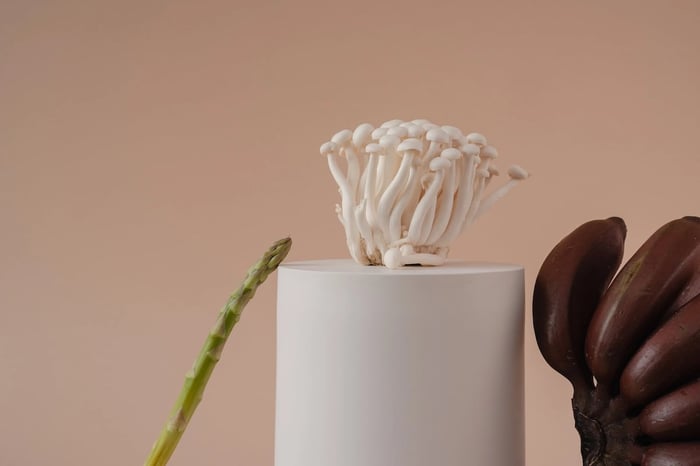 Photo: Marina Leonova
Photo: Marina Leonova
Japan is the fourth-healthiest country in the world (no small feat, when you consider that America is way down the list at #35), and one specific region in the country is especially known for having a population of people who live into the triple digits in good health: Okinawa.
People in Okinawa have lower rates of cancer, heart disease, and dementia than people in the U.S., and Okinawan women live longer than women in every other country. For these reasons, National Geographic fellow and longevity expert Dan Buettner named Okinawa a “blue zone,” one of five places in the world where people don’t just survive in old age, but thrive.
Of course, no single habit accounts for this population's longevity—movement, purpose, and family support all play a role—but diet is a significant factor. This is where Shroomboom’s interest in the region comes into play, as mushrooms sit alongside sweet potatoes, tofu, and white rice as foods most often consumed by Okinawans.
According to registered dietitian and Japanese native Asako Miyashita, RDN, five mushroom types in particular are staples in the Okinawan diet. Keep reading to find out what they are, why they’re so powerful, and how to cook with them at home.
1. SHIITAKE MUSHROOMS
“Shiitake mushrooms are what we found to be most popular in Okinawa,” Buettner says. “These smoky flavored fungi, which grow naturally on dead bark in forests, help flavor Okinawans' customary miso soup and stir fries.”
What makes shiitake mushrooms so special? They contain more than 100 different compounds with immune-protecting properties. One of those compounds is eritadenine, which has also been shown to help lower cholesterol. Additionally, shiitake mushrooms contain RNA, which benefits the immune system and has antiviral effects. “It also helps with skin issues because RNA is essential to cells replicating themselves,” Miyashita says.
Try cooking with shiitake at home using these recipes for a vegan shiitake miso cream rice bowl and tofu steak with miso mushrooms.
2. SHIMEJI MUSHROOMS
 Photo: Yuval Zukerman
Photo: Yuval Zukerman






